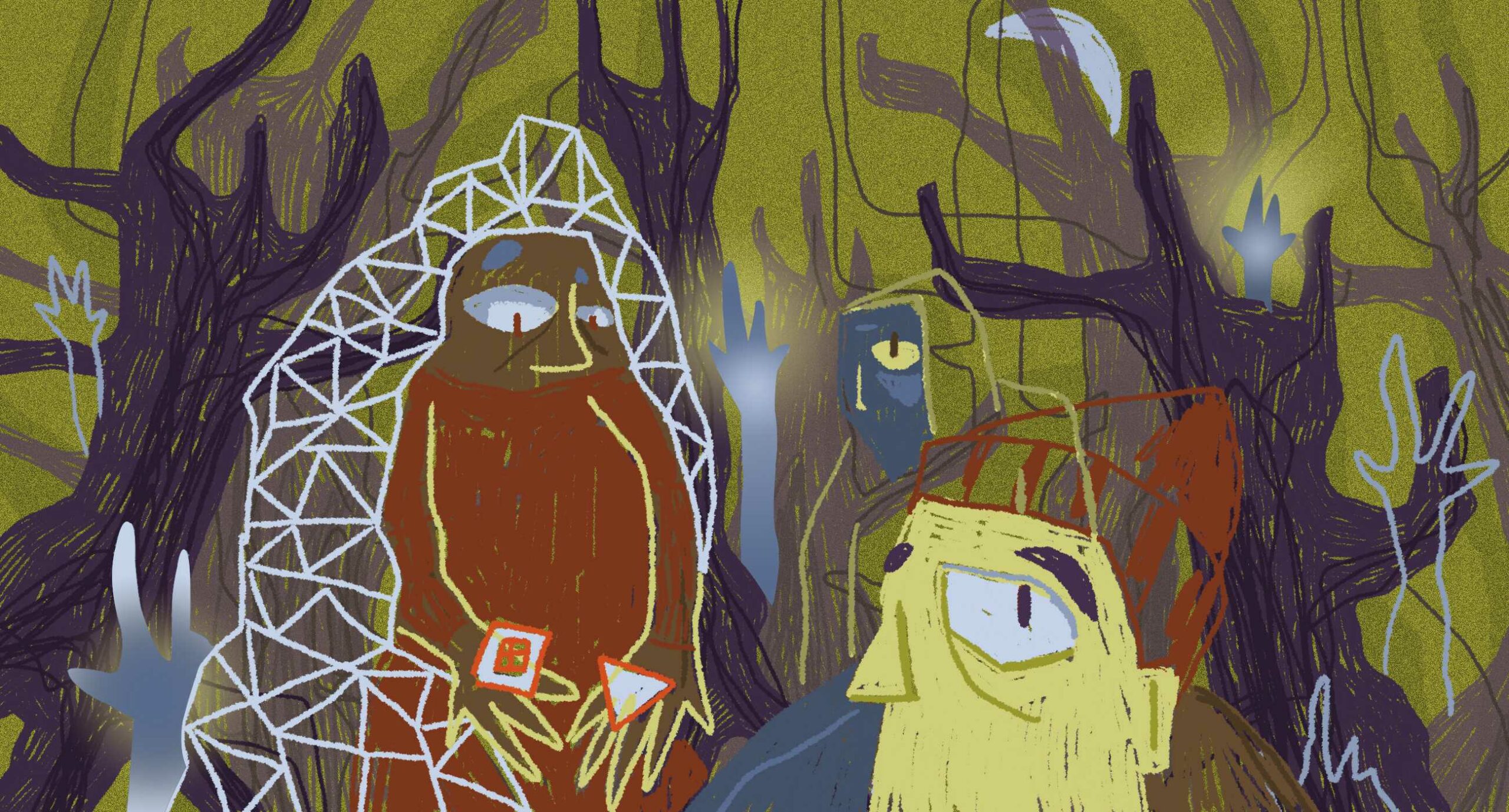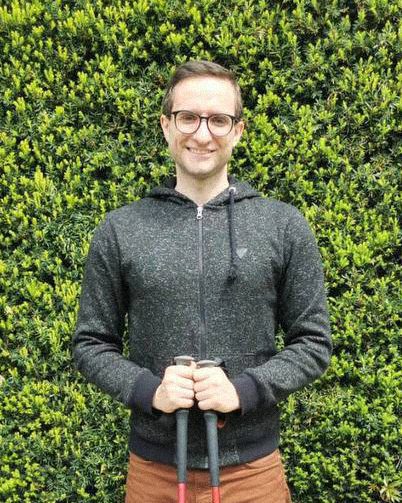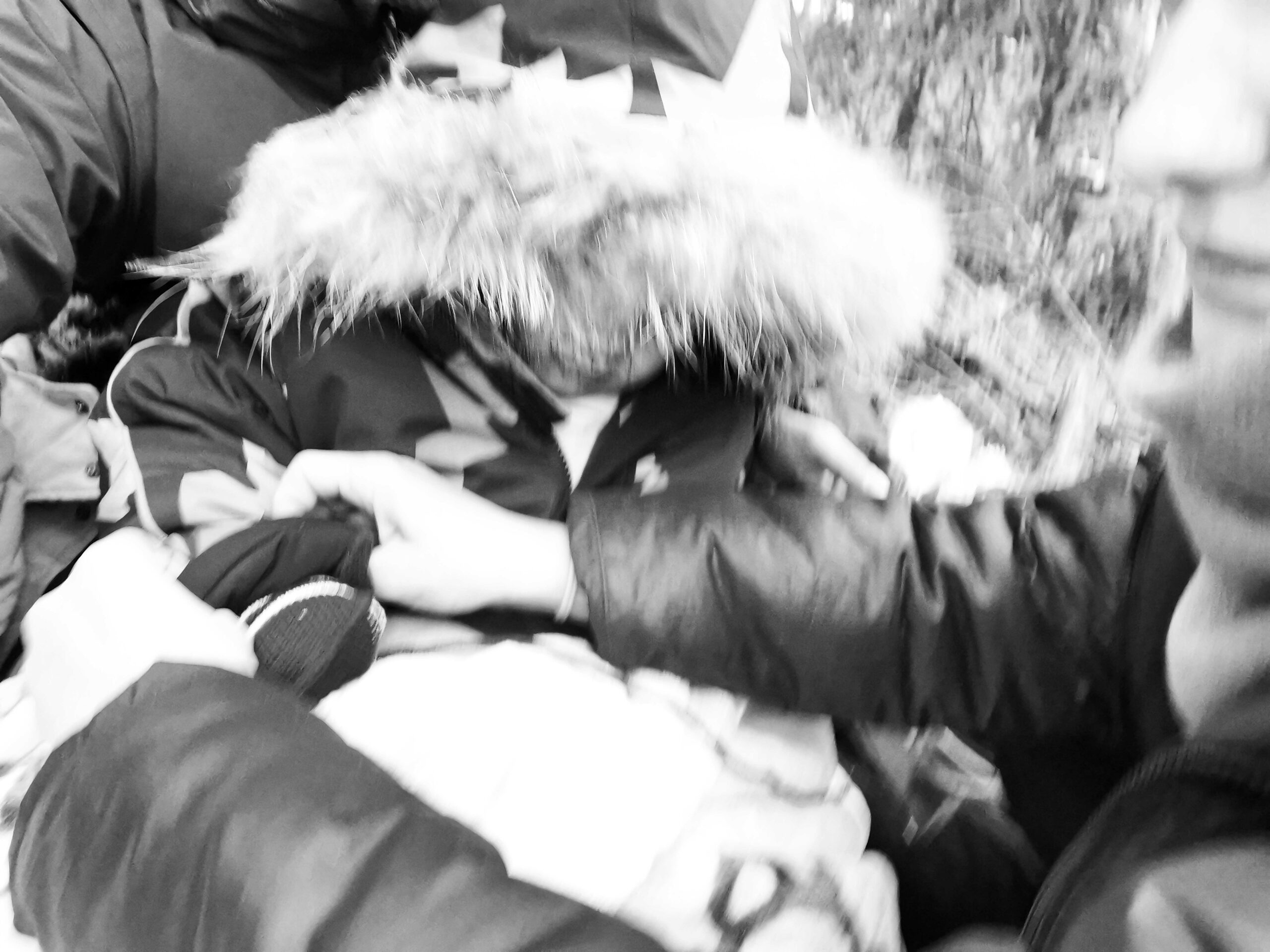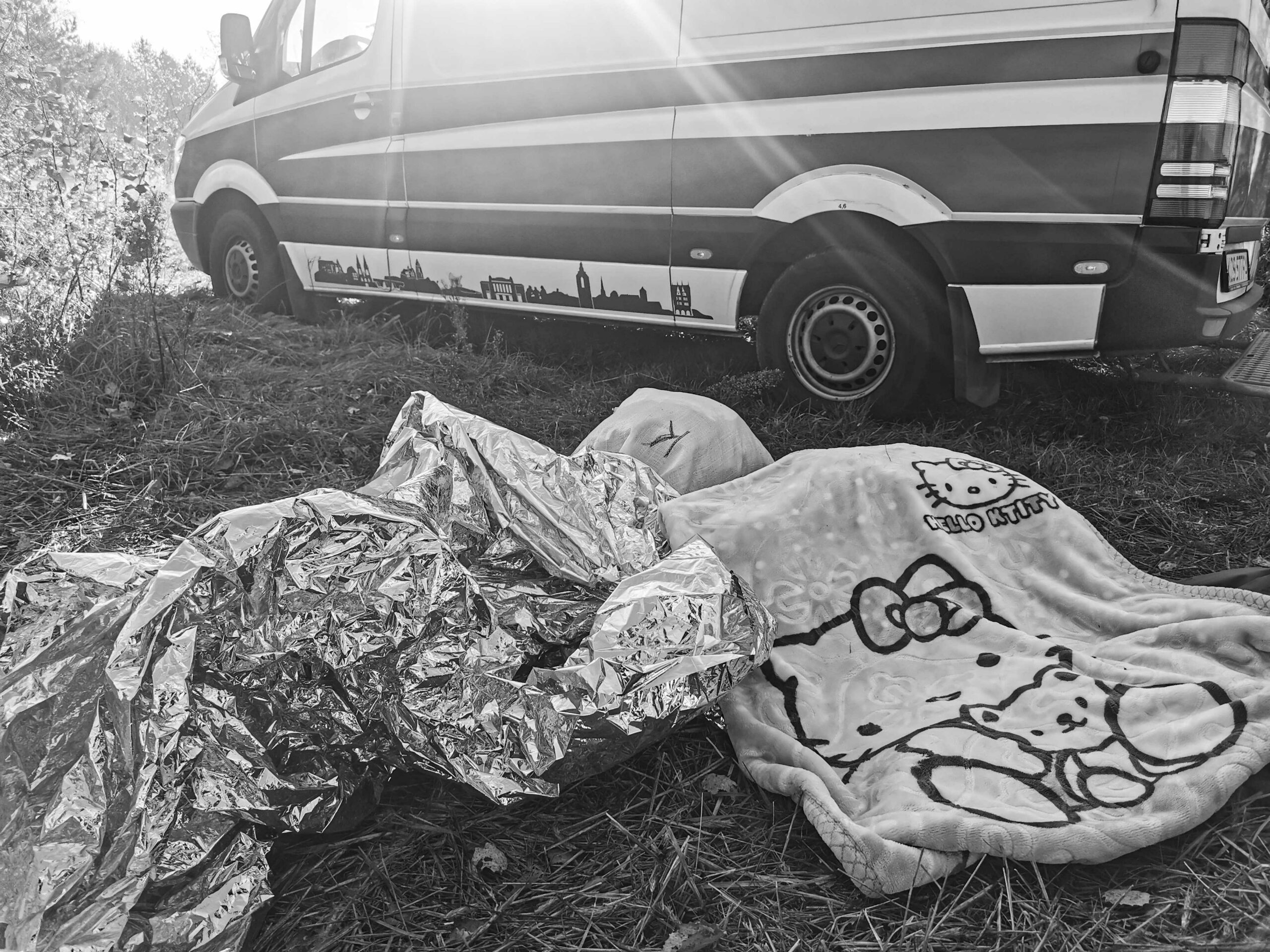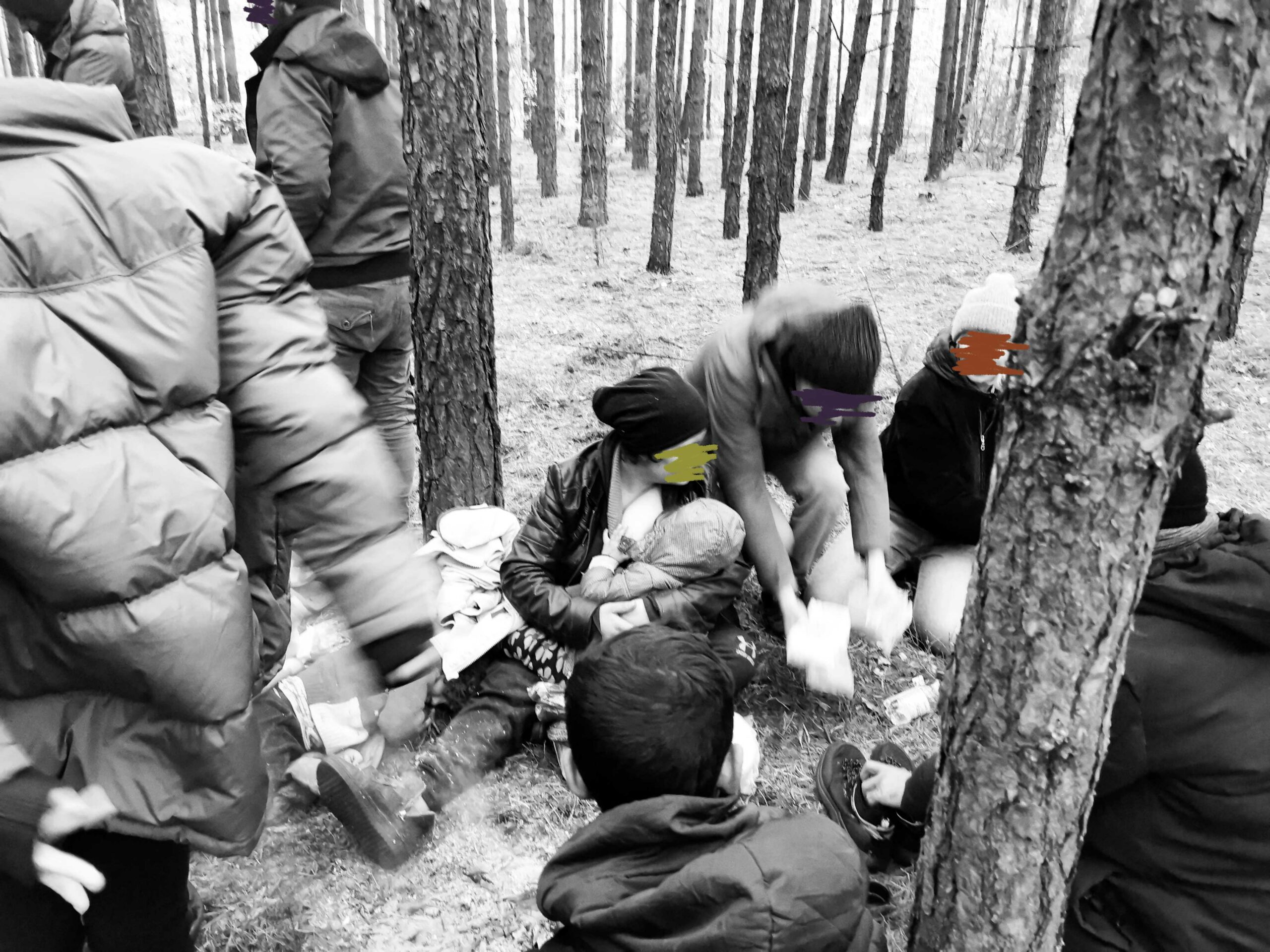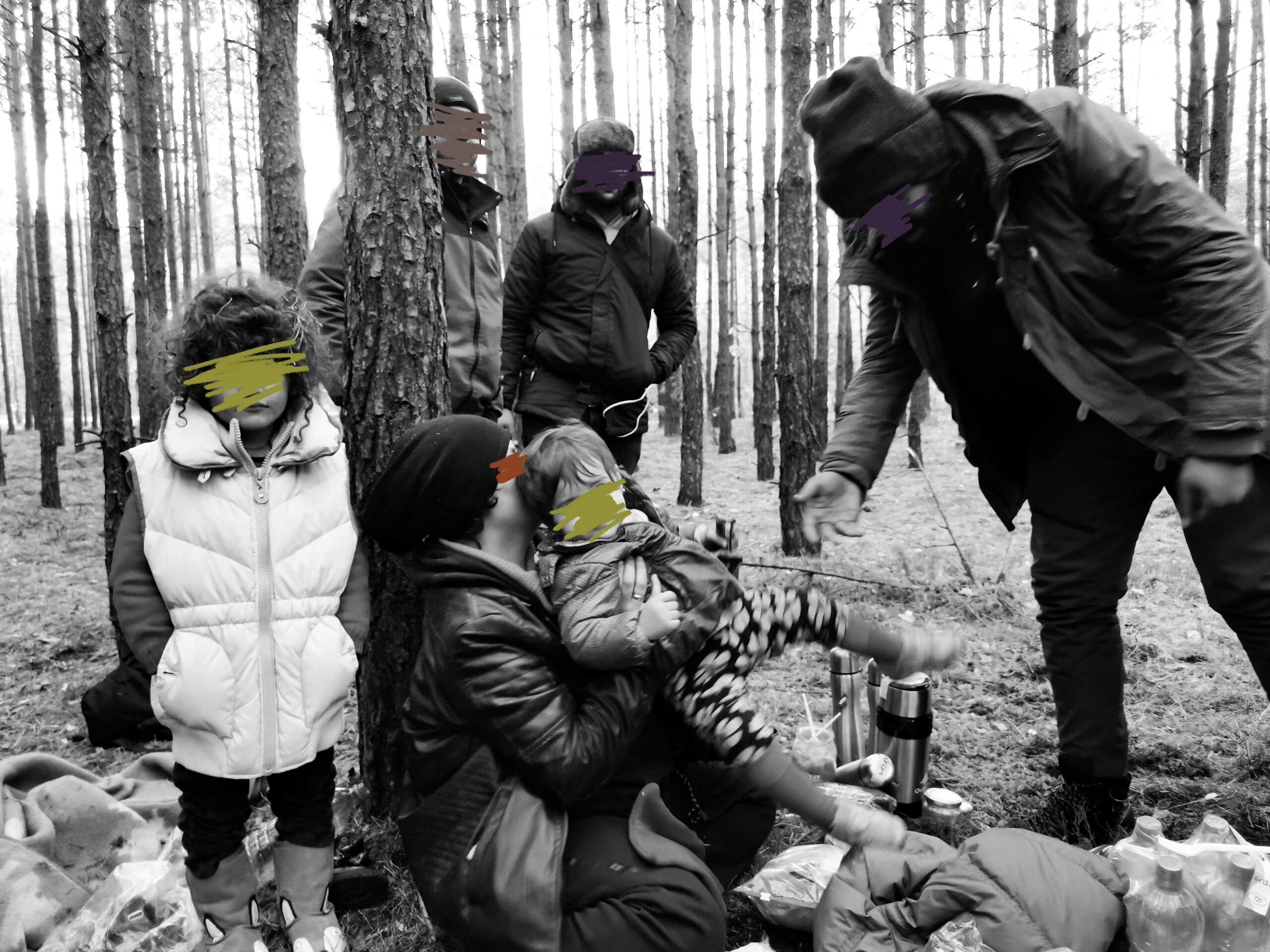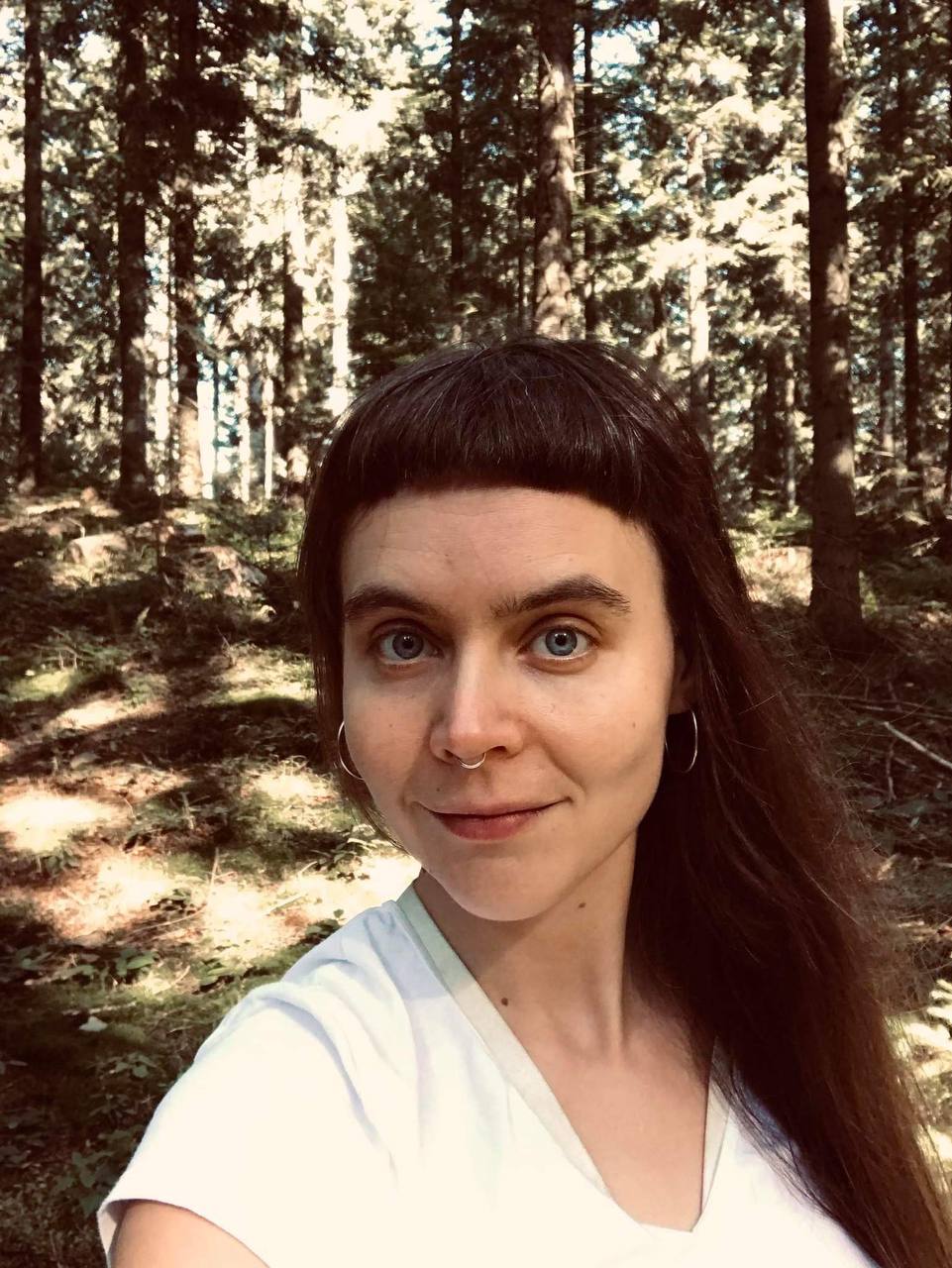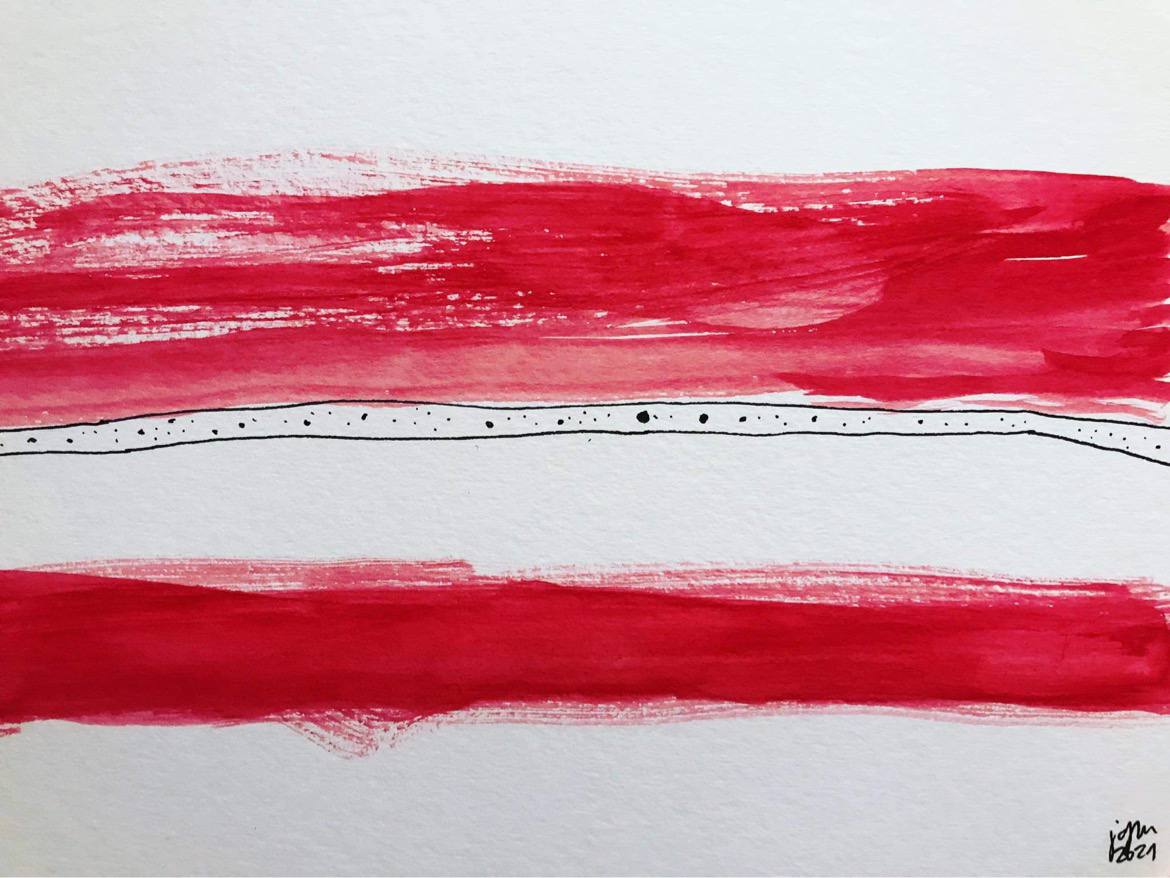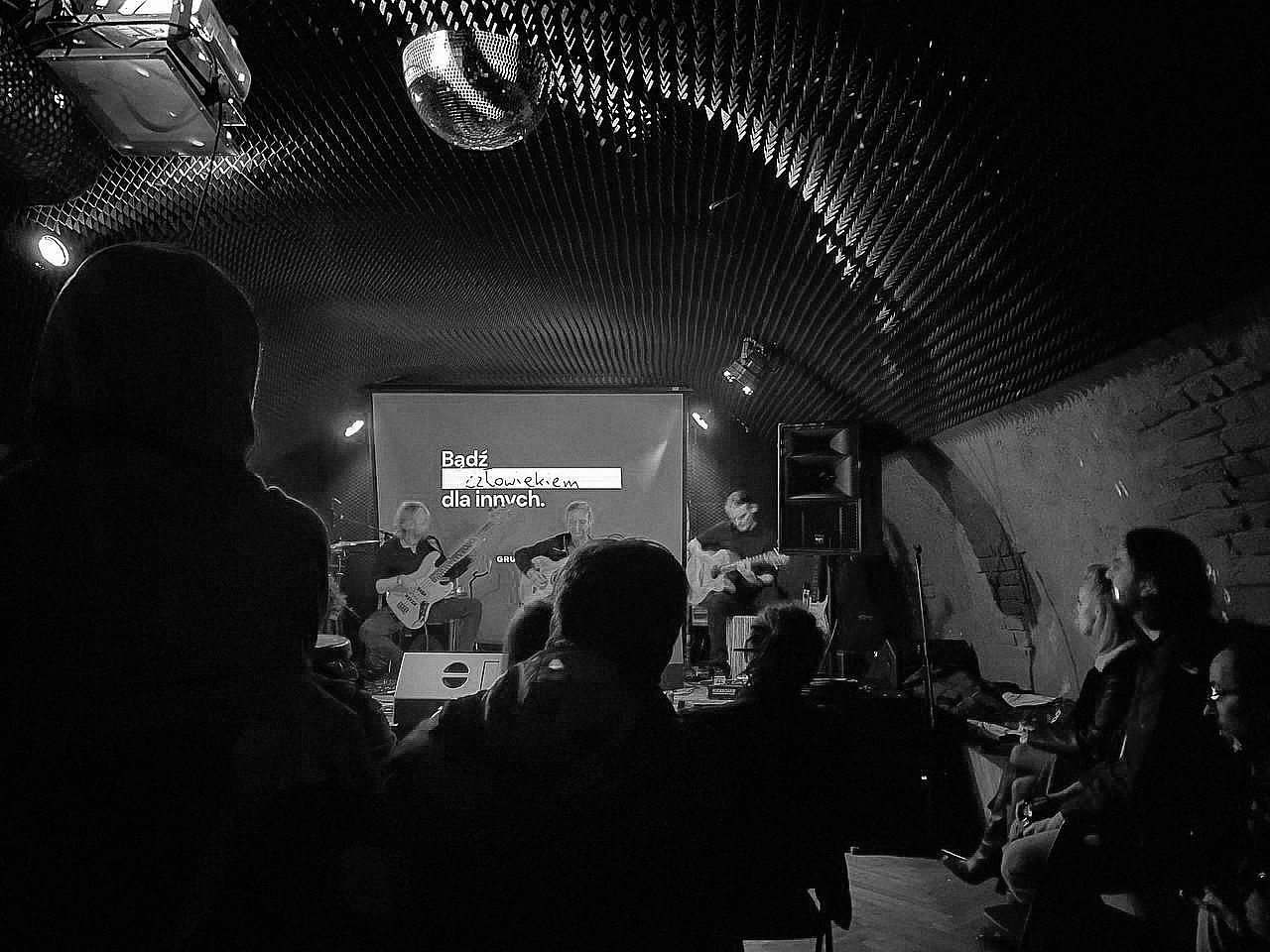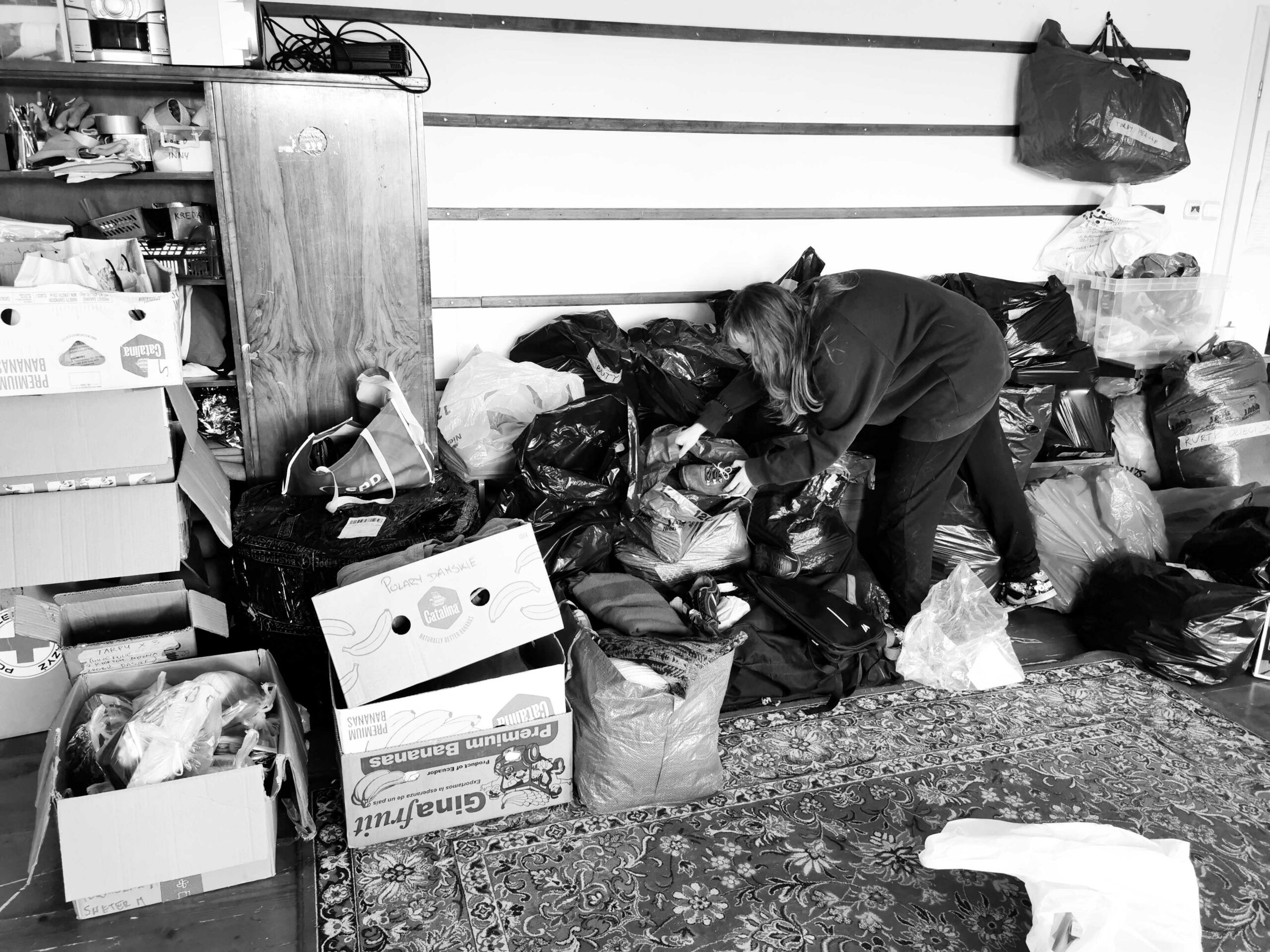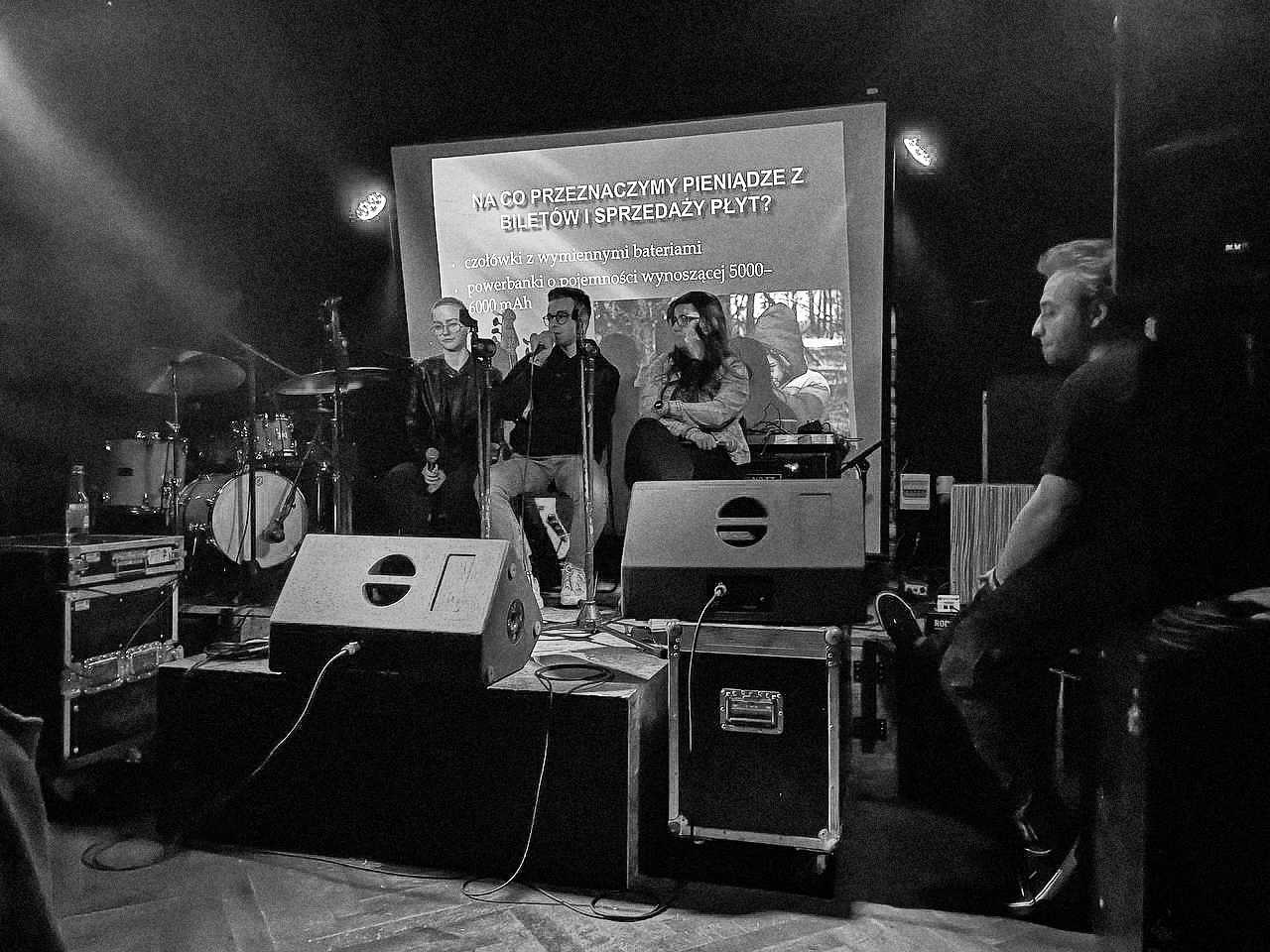A humanitarian catastrophe is occurring on the border between Poland and Belarus. After the European Union introduced sanctions against Belarus, Poland has repeatedly made claims about provocations from Belarus, which is sending thousands of people to the EU border. People are trapped between border agencies: Belarus is using torture and forcing them to go toward Poland, and Poland is loading them into cars and sending them back to the Belarusian border. Zaborona journalist Nastya Podorozhnya lives in Kraków. She spoke with Poles coming in from across the country to save people on the border and reveals why the catastrophe is only expanding despite their efforts.
Early one October morning, a group of volunteers from Poland made its way through the largest primeval forest in Europe: Białowieża. They found a couple with their young child. The volunteers also received calls for help at night, but it was impossible to find people in the dense woods.
Ivo Los, one of the participants in the search operation, discovered the family at around 7-8 A.M. The adults were lying down on the bare earth and had placed the little girl on top of their bodies.
“I think they saved the girl’s life by placing her like that. She was even warm, but the adults were really suffering from frostbite. Especially the woman,” Ivo said in a conversation with Zaborona. “She didn’t even have the strength to drink from a water bottle. She was disoriented, she didn’t react to what we were saying.”

Ivo Los
It gets very cold in the fall in eastern Poland. In Hajnówka, a town of 20,000 known as the “gates to the Białowieża forest,” the average temperature in October is 7°C (45°F). There has already been frost at night this fall.
Ivo and his colleagues covered the adults with foil rescue blankets. The girl, who was around two years old, was given gloves for her bare hands and a hat for her head. The volunteers brought dry shoes, mineral water, energy bars, tea in a thermos, and boxed lunches.

- Photo: Ivo Los
Ivo does not live in Hajnówka or the nearby area. Last month he defended his doctoral thesis in sociology in Warsaw. Once every few weeks he travels to the Białowieża Forest region to help people attempting to cross the border between Belarus and Poland. For the first time Ivo arrived with an injured leg: “I didn’t know if I could physically walk around the forest. I thought at the very least I would be helping people somewhere in the back.” Now when Ivo comes to the border, he and his colleagues go out responding to calls several times a day.
They tried to call an ambulance for the couple and their young daughter, but they were told that if migrants are found in the woods, they would need to call the police. The activists instead called “Medics on the Border,” a non-profit organization of doctors who, like Ivo, come from across Poland to help people suffering from the humanitarian crisis.
The “Medics” vehicle arrived 40 minutes after the call. It was impossible to drive through the forest, so they had to travel through the thicket to get to the roadway. They carried the woman in their arms, while the man leaned on Ivo’s colleague and slowly walked toward the road.
Because of his injured leg, Ivo was left with the girl. He said: “I was sitting on the ground, I took the girl onto my knees and covered us with the foil blanket. At one point she started crying for her mother … I did a Google search for ‘fairy tale in Arabic,’ and we put on an animal cartoon for her. She even laughed sometimes.”

- Photo: Ivo Los
Ping-Pong
The woman was taken to a hospital, where they managed to save her. That’s all Ivo knows about the fate of that family.
“I only assist those who need help on the road, and a lawyer takes it from there,” he said. “I don’t know whether they receive refugee status or if they send them back into the woods despite the lawyer.”
“The second scenario is much more likely,” Zaborona was told by Marta Gurczyńska, a lawyer and human rights specialist. She is monitoring the situation on the Poland-Belarus border. Monitoring is also necessary on the border itself, however, it has been impossible to go there for over a month.

Marta Gurczyńska
In May, after the European Union introduced sanctions against Belarus in response to the government hijacking of a Ryanair flight and the arrest of Raman Pratasevich, Alexander Lukashenko announced that Belarus will no longer prevent drug contraband and illegal immigration into the EU.
In fact, the Belarusian government went even further. As early as June, Lithuanian border police detected a sharp rise in the number of immigrants (especially from Iraq) illegally crossing the Lithuania-Belarus border.
Since early August, reports on the arrests of “illegal immigrants” on the Poland-Belarus border started appearing on the website of the Polish Border Guard. Sometimes the Border Guard arrested groups of up to 100 people. In the meantime, Lithuania has already cited “provocations” from the Belarusian border agents: according to the Lithuanian Ministry of the Interior, Belarusians are not only illegally entering the territory of Lithuania themselves, but also bringing in migrants.
In early September, Warsaw declared a state of emergency on a line three kilometers from the Poland-Belarus border. No journalist or humanitarian organization can enter the territory of the state of emergency. The government has also turned away both international organizations like the Red Cross and Polish organizations like “Medics on the Border.” Authorities are not required to respond to questions about what is happening on the border: the order stipulates “the refusal to provide information about actions taken in the territory of the state of emergency in connection with the prevention and resistance of illegal migration.”
Migrants are coming into the country illegally, but they are requesting international protection. According to international law, Poland is required to consider every request and is only allowed to deport people in the event of a refusal. In practice, everything works differently, Ivo says: “Sometimes only a few hours after we encounter them, the Border Guard has already grabbed people, for example, from the hospital and taken them back to Belarus.”

- Photo: Ivo Los
“Pushback” is a situation that occurs when border guards immediately send migrants back to the border, often without talking to them and even without checking their documents.
“Based on what I was told from the people I met with, the Belarusian border police did not allow them to return to Minsk, even if that is what they wanted. People are in a ping-pong match between one border agency and another. They’re clearly very tired and sleep-deprived,” said Ivo.
A young Syrian named Ahmed, whom Ivo encountered in the forest, had been passed back and forth between the Poles and Belarusians several times.
“When my colleague and I found him, he was in a very bad mental state. He was shaking, he was crying, he was really nervous, he had emotional outbursts,” Ivo said. “By the time we encountered him, he had spent at least two weeks in the forest and had been through pushback several times. Other people found Ahmed later and brought him to the hospital: he was dehydrated and weak. Within two hours they took him from the hospital and sent him back to the border, even though he had asked for protection and was sick.”

In the forest with a rolling suitcase
Migrants who spoke with Marta Gurczyńska described various stories about how they ended up in Minsk. “The Belarusian regime sells people cheap visas and promises an easy road to Europe, which ends up being a death trap,” she said. Gurczyńska clarified that the word “cheap” is relative here, since “very often people have to sell all their property to make a journey like this.”
Several migrants tell human rights defenders that they never suspected they would have to go through the forest to get to the EU, and even do so illegally.
“Some people were told that they could freely cross the Polish border with a Belarusian visa. That means that visa centers and travel offices in Belarus are misleading people by offering them made-up conditions for crossing the border, and people end up cheated. They don’t know what they signed up for. Nobody preparing themselves for such a difficult journey through the forest arrives with a rolling suitcase and high-heeled boots; although we have also seen that happen,” said Marta Gurczyńska.
Gurczyńska also met with many people who decided to travel through Belarus after long attempts to join up with their relatives in the EU legally. For example, one Syrian woman suffers from epilepsy. She was denied the chance to receive necessary treatment in Syria. For four years she tried to get legal authorization to join her parents living in Germany. Nothing came of it, and she made up her mind to take the road through Belarus. Another example is a man who came to Poland from Great Britain in search of his wife who lost contact with him after ending up at the Poland-Belarus border. “Before that he had tried for six years to transfer his wife legally,” Gurczyńska said.

- Photo: Ivo Los
Both women did not manage to cross through the forest, “they found them somewhere under the bushes in terrible condition” and brought them to a hospital, said Marta Gurczyńska. According to her, this is the “cynical consequence of the pathology of European immigration policy.”
“People who should receive the right to enter legally, either because they have a family in Europe or because there’s a war at home, don’t,” Gurczyńska added. “Europe has a closed-door policy, which leads to people having to take illegal and unsafe paths to immigrate. There’s no other option for them.”
Outrunning the border guards
Because migrants are often taken straight from the hospital and dropped in the forest, like Ahmed, activists don’t call for an ambulance and help people without witnesses whenever possible. Volunteers even try not to linger next to the refugees to avoid attracting attention. Activists believe that local residents who sincerely want to help often call the hospital out of ignorance, but it is better to call “Medics on the Border” instead.
Joanna Grzymała-Moszczyńska came to the border from Kraków to join the rescue operations. She recounted how scary it was to make eye contact with the police or border guards during the operation.
“We once stopped the car in the woods where two men calling for help were supposed to be. The police drove up to us immediately,” she said. “They started inspecting us and threatening us with arrest because we were in the state of emergency zone, even though we weren’t. In the end they told us that if they saw us again in the area, they would arrest us, and the court would figure out whether we were in the zone or not. The police accompanied us to the town of Sokółka, around 15 kilometers from where we were.”

Joanna Grzymała-Moszczyńska
Local residents play a very important role in saving people: some of them give their phone numbers to volunteers to help out when someone calls for help nearby. But not all locals are happy with the activists. “There was a situation recently: we saw three people being approached by border patrol agents. We parked our car to run toward them. A middle-aged man drove up in a car with a local license plate. He stopped and started yelling at us: ‘Who are you? Where are you parking?!’ and making all kinds of stuff up. He was clearly full of hate: he knew what we wanted to do, and he tried to make our job harder,” Joanna said.

Illustration: Joanna Grzymała-Moszczyńska
Torture, hunger, powerlessness
Returning to Belarus means facing lethal danger, said Marta Gurczyńska. She recounted evidence from the refugees themselves who returned to the Belarusian side of the border: “they beat them, they steal things from them. People that they fed to the dogs end up in our hospitals. Children have bites in their legs from Belarusian dogs that they set on people to make them go back to Poland. People talk about seeing how they kill people on the Belarusian side. We recently received a video from refugees in an open-air camp on the Belarusian side: there are 300 people there, among whom several who couldn’t withstand the weather conditions, exhaustion, and lack of medical assistance are dead.”
Polish border guards also shut people in open-air boiler rooms. The only time the media heard about this was in August and is considered the beginning of the humanitarian crisis in Poland. At the time, border agents had sealed off dozens of people near the village of Usnarz Górny. They were kept in the open air for two months. A representative of the Border Guard claimed that the refugees feel satisfied, “they are eating, drinking water, and smoking cigarettes.” At the same time human rights defenders were saying that it took tremendous effort to give people food and medicine via the border agents (there were cases when the refugees went hungry for days), and several of those detained were in a supine position.
Polish prime minister Mateusz Morawiecki said at the time: “The solution to the issue of people trying to get into Polish territory is not to let them into Polish territory. If that happens, we could be facing tens of thousands of people with problems like these. Poles must have the opportunity to protect their borders. The Polish government must have the opportunity to preserve the sovereignty of our territory; that is precisely what we are doing.”
“It is not true that Poland is incapable of taking in migrants, even if there are several thousand of them. Poland’s options are much wider. On the other hand, several thousand is a massive number if we imagine that all of these people will freeze in the forest,” said Marta Gurczyńska.
The events in Usnarz Górny ended with pushback. “60 days after the people attempted to break through this trap, they used force again to arrest them and send them back to Belarus,” said Marta Gurczyńska. According to human rights defense data, such “camps” still exist on the Polish side, but they are inside the territory of the state of emergency. Gurczyńska discovered these boiler rooms from videos filmed by migrants on the inside: “These videos are very short, but we cannot do any monitoring because everything is happening inside inaccessible territory.”
Polish and Belarusian pushback violates numerous international conventions, Marta Gurczyńska said: “First, the border guards are required to make sure that a person is not asking for international defense. Not only do border patrol agents not ask, but they ignore people’s straightforward requests to receive refugee status. The border guards either do not allow people to fill out the corresponding form or do not accept it if it is already filled out. This violates the Geneva Conventions.”
The next violation concerns protecting children and victims of human trafficking, said Gurczyńska: “If we are throwing people out of Poland without investigating their situation, we cannot know whether someone is a victim of human trafficking or not. We also do not know the situation for children travelling with adults. The law on collective expulsion of foreigners is also being violated. Because border guards are not examining every individual separately, they do not know whether a person needs protection for some other reason; for example, health.”
«We recently had a situation involving a family with a child with CP [cerebral palsy],” Marta Hurchyska said. “Polish border guards repeatedly sent them back to Belarus. Calling things as they are, this is what happens: they put them in military trucks and leave them somewhere near the Belarusian border in the middle of the forest. How can you drop a family with a child with CP in the middle of the forest?!”
Gurczyńska is convinced that considering the harsh conditions on the Belarusian border, every refugee who arrives from Minsk fits the criteria for granting international protection. “I say this with full conviction as a lawyer involved in international law. Returning these people to Belarus is a threat to their life in and of itself. That is already enough reason to provide defense for every person,” Gurczyńska said.

“He raped a cow.” What people think of the refugees in Poland
Over 100 people came to the charity concert “We Play for the Borders” in Kraków on October 28. An admission ticket cost 40 złotys: the price of a lunch and beverage in the city center. The program included three performances from local musicians; “the first musical aid,” as they called a market with vinyl records and CDs for 10 złotys each; and a Q&A session with activists from Salam Lab, a local non-profit organization helping migrants and leading advocacy efforts in Kraków.

- Photo: Nastya Podorzhnya
All the proceeds went to funding necessary items at the border: travel utensils, power banks, and headlamps. “Thermoses and containers are often left for the refugees if they are malnourished, so we needed new ones,” Salam Lab activist Aga Stefańska said from the stage.
Stefańska recently returned from the border region. “We have very little time: the sleeping bags and foil blankets will stop working [because of the cold] soon and we will just be coming to count the bodies,” she said in the first minutes of her speech.
Marta Gurczyńska also shared similar concerns with Zaborona, recounting stories of migrants and residents of villages in the state of emergency zone. We now know of nine fatalities that happened in Poland, but there were probably more: “We know this from the migrant men and women themselves: they say that they are encountering dead bodies in the forests. The temperature was -7°C (19°F) at night, and there are no tents or opportunities to hide in the forests. There were children, old people, sick people among the migrants, so you can even rationally or statistically calculate how many of these people, unprepared for spending the night in the forest, must have died. The forests are filled with the victims of this policy, and we will only learn about this when we can go in there; maybe we won’t even know then. Not that long ago we received very disturbing recordings in which local residents say that the corpses of these migrants might be being pulled over to the Belarusian side. A local resident talked about this: she described with horror how Polish soldiers are dragging bodies to the Belarusian side. This is difficult to prove or refute without access to the state of emergency zone,” Gurczyńska said.
Not as many people are going out to protest the events at the border as those, for example, who went to the recent protests against Poland leaving the EU, during which people filled the main squares of Warsaw, Kraków, and Gdańsk (Zaborona wrote about these events). Around a thousand people came to a planned protest in Kraków opposing the humanitarian crisis, while around a hundred attended a spontaneous “moment of silence” in the center of the city in memory of the deceased.
Many of the activists that Zaborona spoke to relate these numbers to a misunderstanding of who refugees are and why they can’t “just return home” if Poland does not take them in.

Photo: Ivo Los
«Every year Poland takes in several hundred thousand people, and there are no problems with that. These are people from Belarus, Ukraine, Georgia: they only have a different attitude toward them at the border because we think that they be useful to us,” Aga Stefańska said on stage. “For example, they will do the jobs that Poles don’t want to do. At the same time, they are calling the several hundred thousand people at the border a ‘migrant crisis’ or a ‘refugee crisis.’ We are surprised that these people have telephones with them: ‘wow, what a luxury!’ I always find that funny; what a luxury it is to have a telephone nowadays…We have a very stereotypical view of refugees. We think that these are people we need to take care of, who can’t handle themselves and will sit around on our ‘socials [welfare benefits].’ It isn’t true. I work with people who have come from Afghanistan. They actually really want to be a part of society and to be useful. If we hold out our hand to help them, they will repay us with their help.”
Polish authorities offer a different view of the people stranded at the border. The Ministry of the Interior and the Ministry of Defense held a press conference on September 27. Mariusz Kamiński, Minister of the Interior and head of the Federal Security Service, presented a photograph (it is unclear whether it was from a phone or from a memory card found in the woods) depicting a person copulating with an animal. The ministers also showed photos with child pornography that were allegedly found with the migrants. According to Stanisław Żaryn, a representative of the Ministry of the Interior, this should prove that there are sexual deviants among the migrants, since the preservation of these photographs is indicative of “practices related to sexual diseases.”
The photograph from the conference that the two ministers looked at on a large screen in which a man is copulating with an animal has spread all over the internet. They also showed it on the evening news of the leading party’s propaganda network, TVP. The network titled the content, “He raped a cow and planned to come into Poland?” This was the first time that the government had shown such photographs at a press conference.
It turns out that the “refugee with a cow” photo was a scene from an old pornography film that was also recorded on VHS and is now available on the internet. The minister also made a mistake in describing the animal: it was not a cow in the screenshot, but a horse. The opposition party “Razem” complained about the speakers at the press conference to the prosecutor’s office: “We are outraged that the ministers, with the help of the media, are distributing pornographic material involving children and animals,” a party representative told Gazeta Wyborcza.
No end in sight
“Do you have any questions?” Salam Lab activists asked at the Kraków event.
After a pause, a girl in the hall asked:
“When will this end?”
“Probably when someone at the top handles it. Either the UN, the European Union, or the Polish government. We are helping on the ground, but the issue will not be solved at that level. Which is why it’s so important to talk about what’s happening and to spread information,” one of the activists said from the stage.
With the coming frost, every night in northeastern Poland will end with mass frostbite in the fields, the swamps, and the wild primeval woods. Ivo Los said that although there are paths in the Białowieża Forest, refugees often avoid them to make the job harder for the border guards. This makes it difficult for search teams and activists. Besides, “to avoid freezing, people try to walk in circles and not stand in place; this also makes the job harder,” he said.

Photo: Nastya Podorzhnya
“I didn’t feel like I was ready for this journey: either I didn’t think I had the strength or that it was a good idea for me in general. But on the other hand, I felt that I couldn’t not do this. It was a paradox,” said Joanna. “I will never forget how two women from the Congo looked at me with such fear when we found them in the forest. [Their eyes said]: “Who’s found us?” Then after we had spent some time together, they ate and started to smile. We banged our fists goodbye: it was really very, very touching.”
Ivo said: “When people say goodbye, sometimes they shake hands, sometimes they hug. It could just be an expressive glance toward each other. Sometimes there are bows. In any case, farewell gestures are always very personal on both sides.”
In the week of October 16-22, the group “Border,” a union of non-profit organizations and independent activists helping refugees, received calls for help from 966 people. They have only managed to help 413 of them: all the others are still in the inaccessible state of emergency zone. The government has extended the state of emergency to December 2.
Translated by Arthur Mengozzi of Respond Crisis Translation

